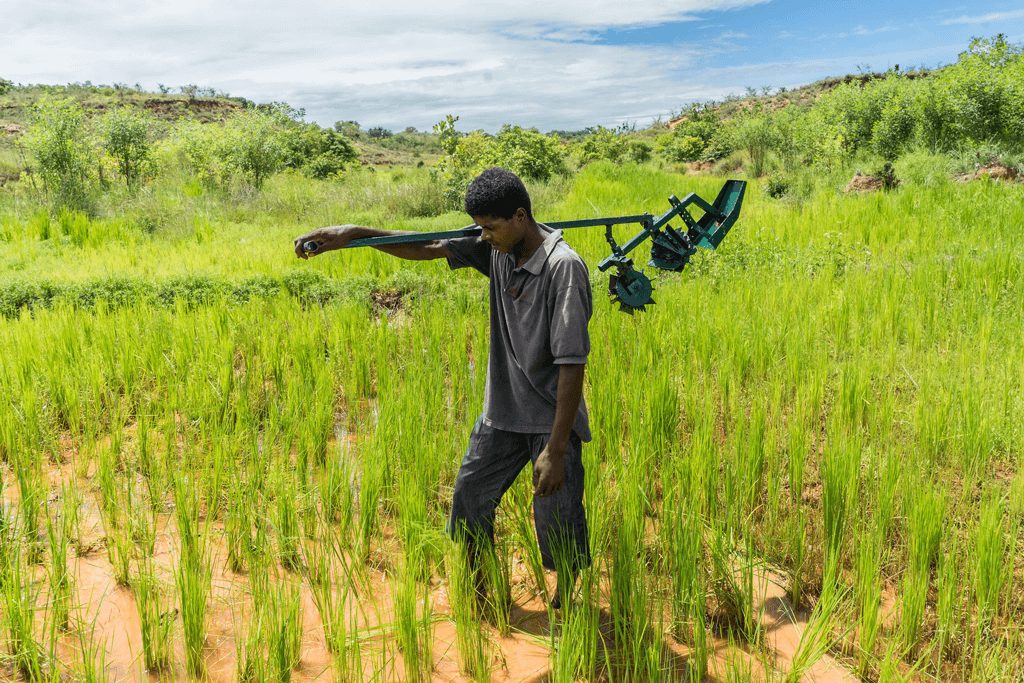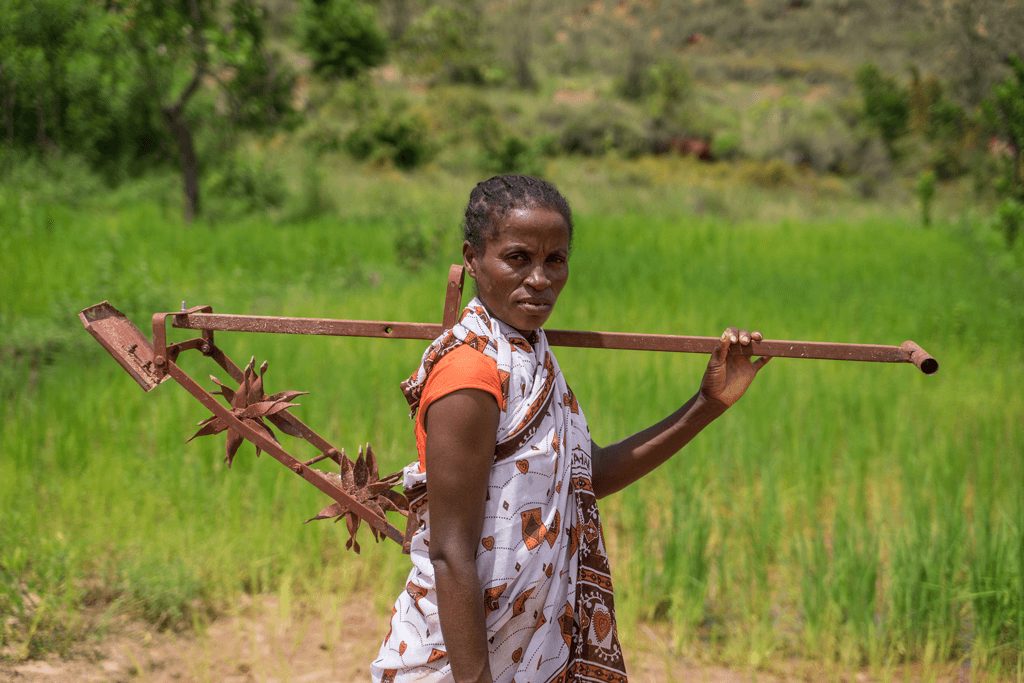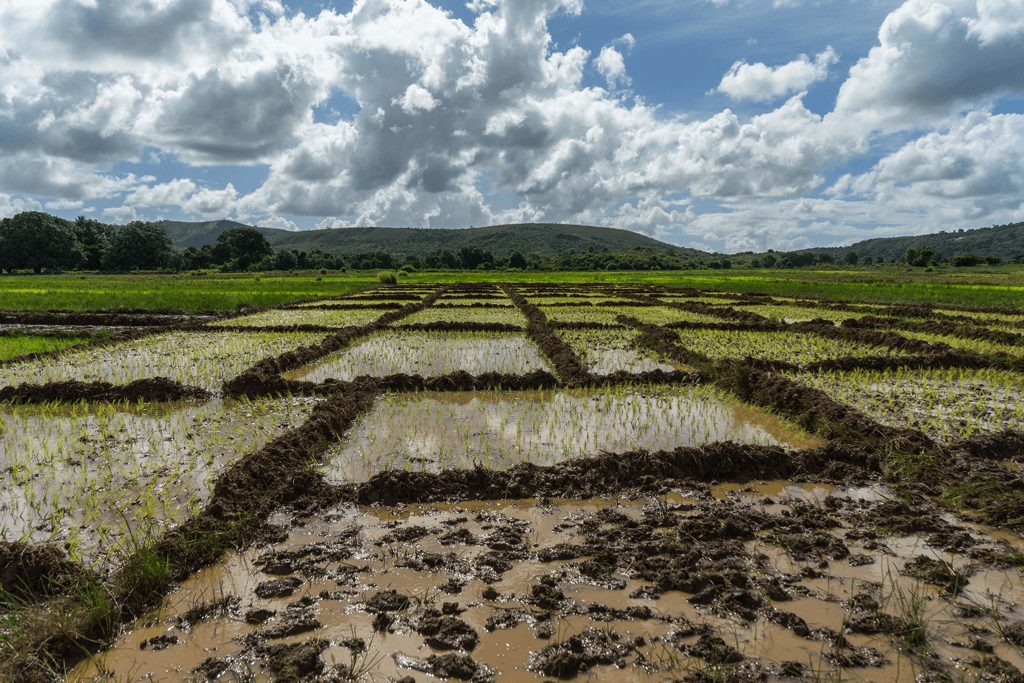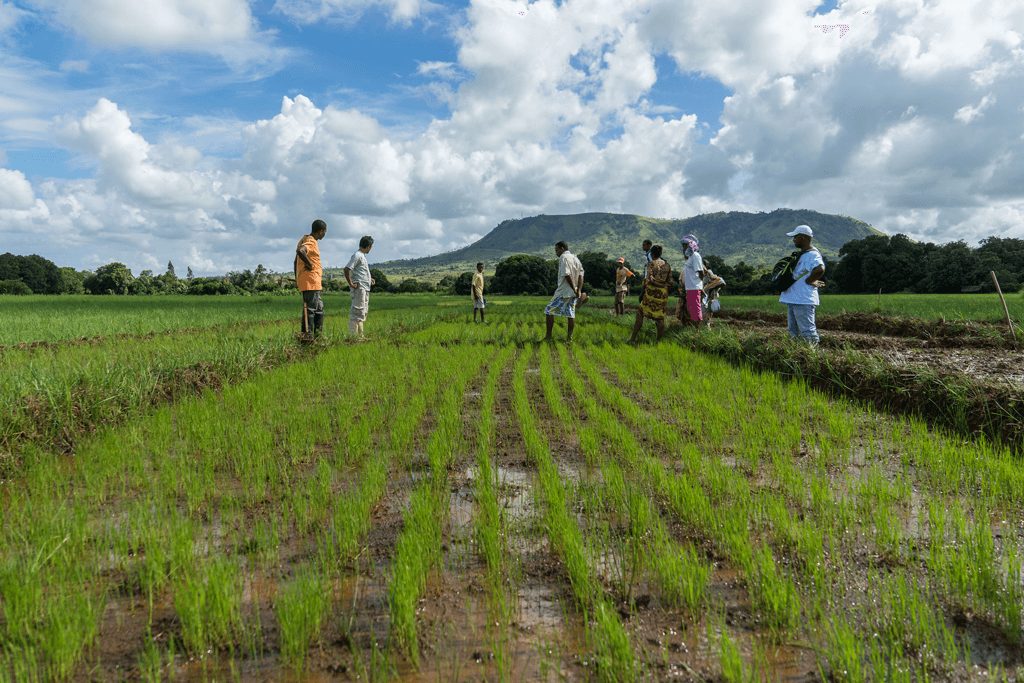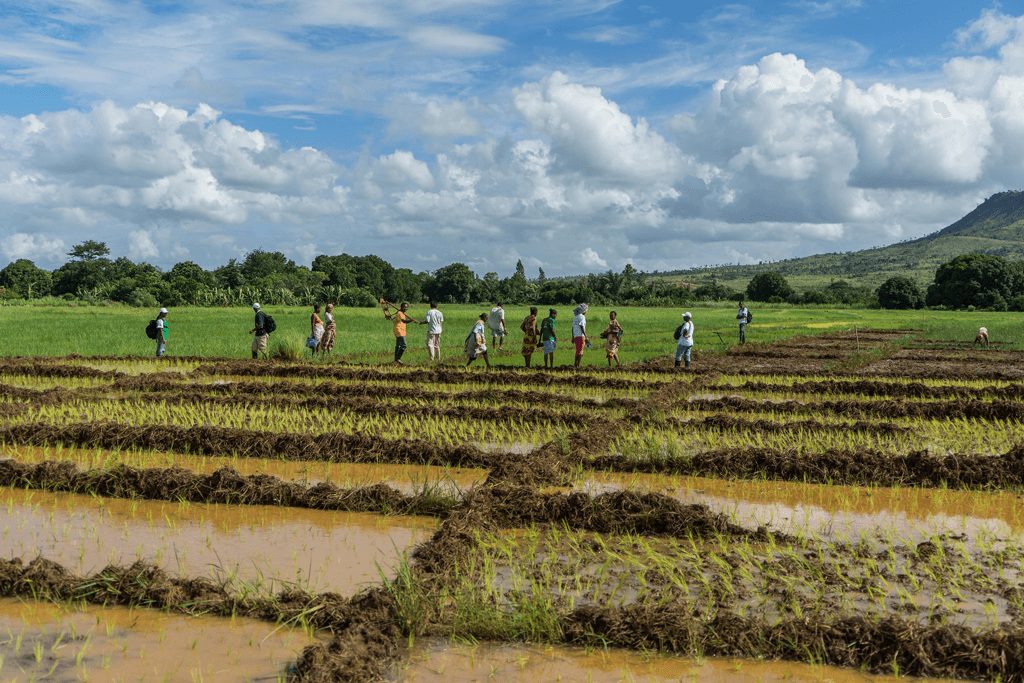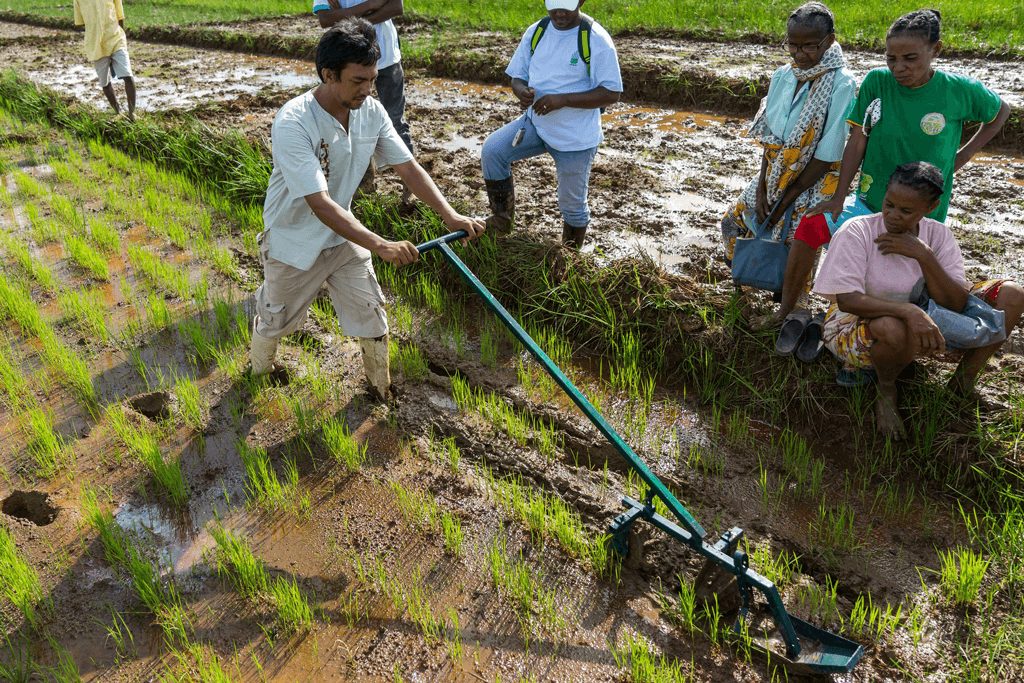Farmers have the ability to gradually adopt the ZRPS pillars at their own pace and can actually implement the system in a much broader range of topographies than SRI. By reducing labour that is usually assigned to women and water requirements, ZRPS is both gender-friendly and climate smart. Since its initial design, the system has provided extremely promising results in terms of productivity, while going through a continuous improvement process from field observations and experiments.
Through SPEEDRICE, AKF will test and adapt ZRPS across various agro-ecological zones of Madagascar: working in 5 regions (Sofia, Diana, Sava, Analamanga, Itasy). By the end of the project, AKF will train 20,000 smallholder farmers in ZRPS, expecting an adoption rate of 30% and rice yields to increase by 50% or more.

